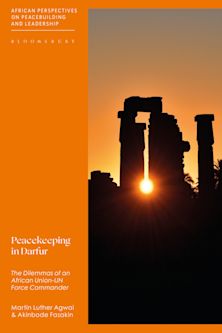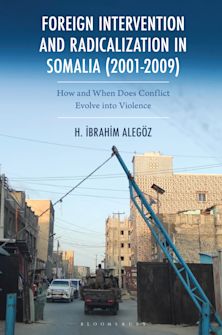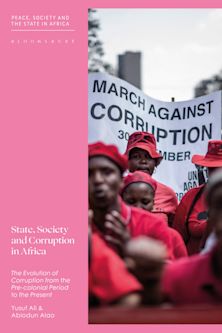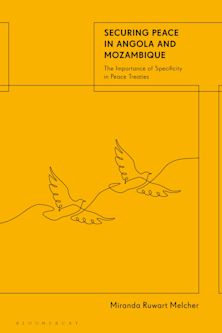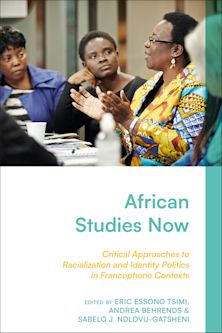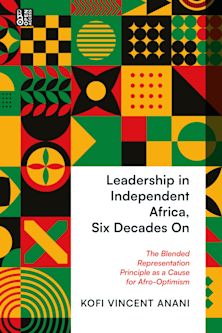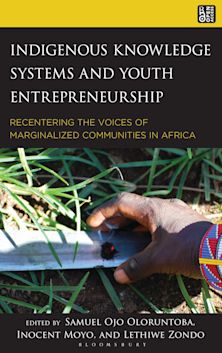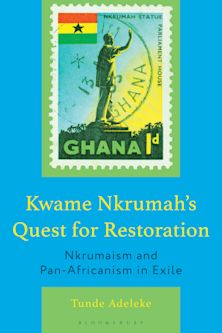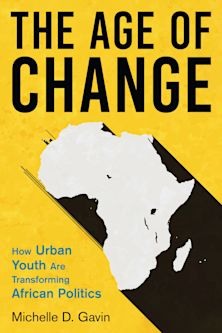- Home
- ACADEMIC
- Politics & International Relations
- African Politics
- Balancing Sovereignty and Development in International Affairs
Balancing Sovereignty and Development in International Affairs
Cameroon's Post-Independence Relations with France, Africa, and the World
Balancing Sovereignty and Development in International Affairs
Cameroon's Post-Independence Relations with France, Africa, and the World
You must sign in to add this item to your wishlist. Please sign in or create an account
Description
Balancing Sovereignty and Development in International Affairs is about Cameroon, a minor power in world affairs, and her foreign policy and international relations, especially as she deals with major powers, in this case, France. It emphasizes Cameroon’s economic and political relations with France, her relations with Francophone Africa, Anglophone Nigeria during the Nigerian Civil War of 1967–1970, the hot button issues of African liberation, and the development challenges that she faced.
The study probes the nature, scope, depth, dynamics, and drivers of Cameroon’s foreign policy to understand its logic, and to uncover the consequences to the country's development and sovereignty. It also investigates and sheds light on some conventional views about Cameroon’s relations with France—the view that Cameroon is a French puppet. The above questions are investigated within the theoretical framework of dominant-dependent- compliant behavior in world politics. Put differently, as a minor partner in her relations with France, was Cameroon being unduly exploited to France’s benefits or not? If not, what were Cameroon’s benefits in the relationship? And if so, what were the benefits to France?
The case study method, supplemented by rich statistical time series analysis, source-tracing and interviews were used to uncover patterns and common themes in Cameroon’s foreign policy behavior and to systematically document her economic dependence on France and assess if such dependence also generated political consequences for Cameroon in its behavior towards France.
Part One of the book discusses the historical origin of the modern Cameroonian state, the domestic context of its foreign policy, post-independence politics, and challenges associated with nation-building, national independence, domestic security, and economic development, that underlay the country’s world view and guided her international behavior. This part also analyzes Cameroon's economic relations with France focusing on trade, investments, and aid, revealing that France dominated the Cameroonian economy in all three sectors, explaining what accounted for such dominance, and what Cameroon tried to do to alleviate the situation. Part two focuses on case studies of critical foreign policy challenges that Cameroon faced, and how she reacted to French interests and pressure.
Table of Contents
Chapter 1: Introduction
Chapter 2: Historical Context
Chapter 3: The Domestic Context, Principles and Strategy
Chapter 4: Economic Relations with France
Part II
Chapter 5: Cameroon, France and the Nigerian Civil War 1967–1970
Chapter 6: OCAM and the Air Afrique Crisis
Chapter 7: CAM AIR, CICAM, CIMENCAM, and African Liberation
Chapter 8: Conclusion
About the Author
Product details
| Published | Aug 15 2017 |
|---|---|
| Format | Ebook (Epub & Mobi) |
| Edition | 1st |
| Extent | 237 |
| ISBN | 9781498530644 |
| Imprint | Lexington Books |
| Illustrations | 11 Tables |
| Publisher | Bloomsbury Publishing |
About the contributors
Reviews
-
Moses Tesi employs a dynamic transnational perspective to understand the bilateral relations between France and its former colony of Cameroon. . . Tesi’s use of a more dynamic transactional bargaining model is novel not least because it affords us an opportunity to question the notion that economic dependence always gives rise to compliant foreign policy behavior. Instead, his analysis helps us to see the fluidity and complexity of foreign policy outcomes even under conditions of dependence.
African Studies Quarterly
-
[Tesi] has provided a constructive examination of important factors influencing Cameroon’s foreign policy and has contributed to that literature suggesting the relevance of modified models in mainstream IR to Africa’s international relations, and that which demonstrates the agency of African states in their foreign policies in the post-colonial era in spite of their often subaltern position in world affairs.
Journal of Modern African Studies
-
Skillfully weaving the history of bilateral commercial, economic, and diplomatic interactions between Cameroon and France, Tesi highlights the inherent tensions between the question for sovereignty and the imperative for development. The book contributes to the understudied and undertheorized relationship between a "minor state" and a dominant state using a transactional framework.
Karen A. Mingst, University of Kentucky
-
Moses Tesi offers a rigorous, original and superb analysis of post-colonial France-Cameroon relations that embodies many typical political-economic and cultural interactions between a former colonial power (France) and its former colony (Cameroon). The issues that comprise the substance of their bilateral interactions are clearly presented as the product of their evolving mutual interests immediately following Cameroon’s independence. The analysis contributes academically original and mature insight within a framework of dynamism in their relationship and not the often static analysis of core-periphery, north-south, or developed-developing country approaches. This is a timely and thorough analysis that develops a more reliable way of assessing political, economic, and policy relationships between great powers and small powers. It could serve as a model for the examination of other cases of north-south interactions. It is an excellent addition to all France-Africa resource collection. Even a cursory examination of the book will reveal its dynamic analytical structure, as well as the personal acquaintance of the writer with the subject matter.
Earl Conteh-Morgan, Professor of International Studies, University of South Florida
-
Professor Tesi has written an important book. It is much more than a narrative on the creation and execution of Cameroon’s foreign policy. In addition to placing events within their proper historical context, the book delves into the nation’s many flashpoints such as identity politics, Francophone, Anglophone, rural-urban conflict, and corruption. The book is a timely and significant addition to Cameroonian and African studies.
Julius Amin, University of Dayton












